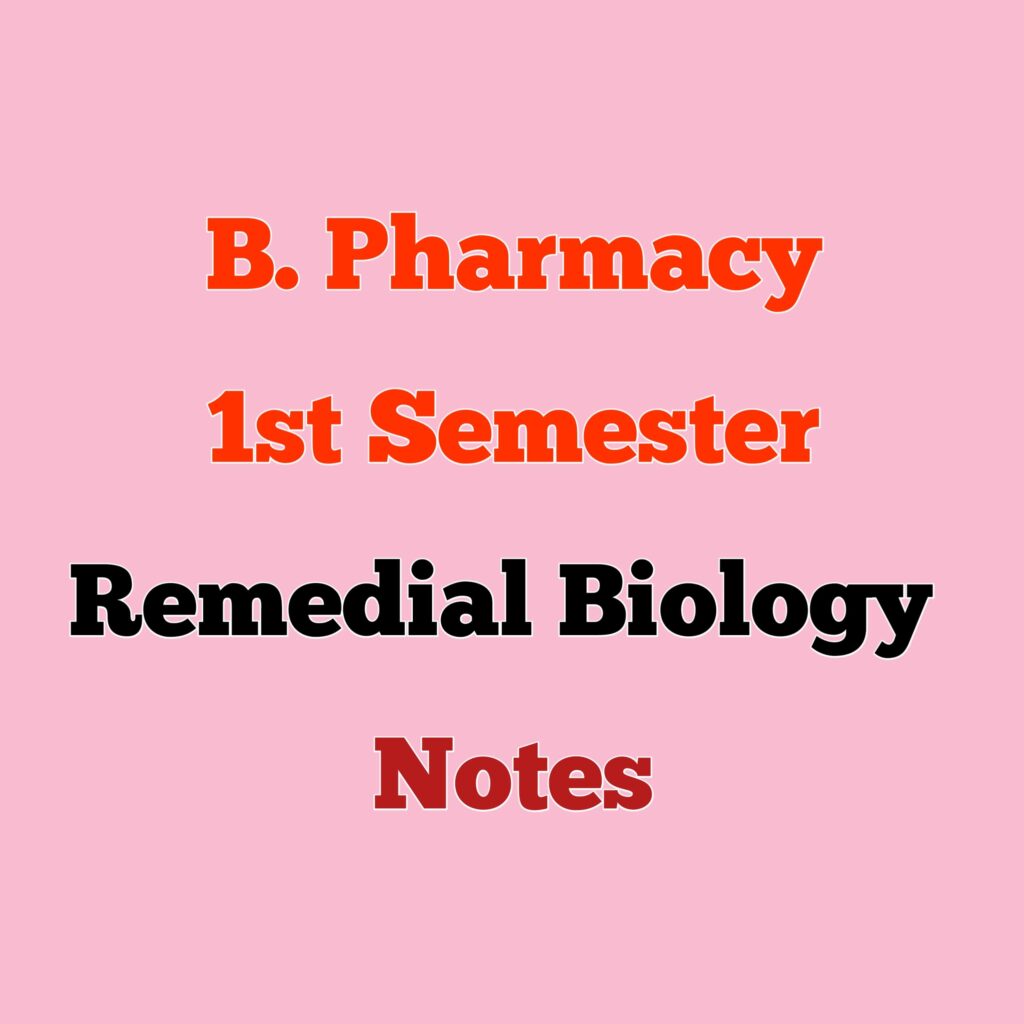B.Pharmacy Remedial Biology notes, units 1 to 5, provide easy-to-understand lectures on remedial biology.

Remedial Biology Overview
This section covers key concepts in remedial biology essential for B.Pharmacy students, including the foundational principles of biology necessary for understanding advanced pharmacological studies.
UNIT I
Living world:
Definition and characters of living organisms
Diversityin the living world
Binomial nomenclature
Five kingdoms of life and basis of classification. Salient features of Monera, Potista, Fungi, Animalia and Plantae, Virus,
Morphology of Flowering plants
Morphologyof different parts of flowering plants– Root, stem, inflorescence, flower, leaf, fruit, seed.
General Anatomyof Root, stem, leaf of monocotyledons & Dicotylidones.
Download Link ↓
Nirali Publication
UNIT II
Body fluids and circulation
Composition of blood, blood groups, coagulation of blood
Composition and functions of lymph
Humancirculatorysystem
Structure of human heart and blood vessels
Cardiac cycle, cardiac output and ECG
Digestion and Absorption
Humanalimentarycanal and digestive glands
Role of digestive enzymes
Digestion, absorption and assimilation of digested food
Breathing and respiration
Human respiratorysystem
Mechanism of breathing and its regulation
Exchange of gases, transport of gases and regulation of respiration
Respiratoryvolumes
Download Link ↓
UNIT III
Excretory products and their elimination
Modes of excretion
Humanexcretorysystem- structure and function
Urine formation
Rennin angiotensin system
Neural control and coordination
Definition and classification of nervous system
Structure of a neuron
Generation and conduction of nerve impulse
Structure of brain and spinal cord
Functions of cerebrum, cerebellum, hypothalamus and medulla oblongata
Chemical coordination and regulation
Endocrine glands and their secretions
Functions of hormones secreted byendocrine glands
Human reproduction
Parts of female reproductive system
Parts of male reproductive system
Spermatogenesis and Oogenesis
Menstrual cycle
Download Link ↓
UNIT IV
Plants and mineral nutrition:
Essential mineral, macro and micronutrients
Nitrogen metabolism, Nitrogen cycle, biological nitrogen fixation
Photosynthesis
Autotrophic nutrition, photosynthesis, Photosynthetic pigments, Factors affecting photosynthesis.
Download Link ↓
UNIT V
Plant respiration:Respiration, glycolysis, fermentation (anaerobic).
Plant growth and development
Phases and rate of plant growth, Condition of growth,Introduction to plant growth
regulators
Cell- The unit of life
Structure and functions of cell and cell organelles.Cell division
Tissues
Definition, types of tissues, location and functions
Download Link ↓
